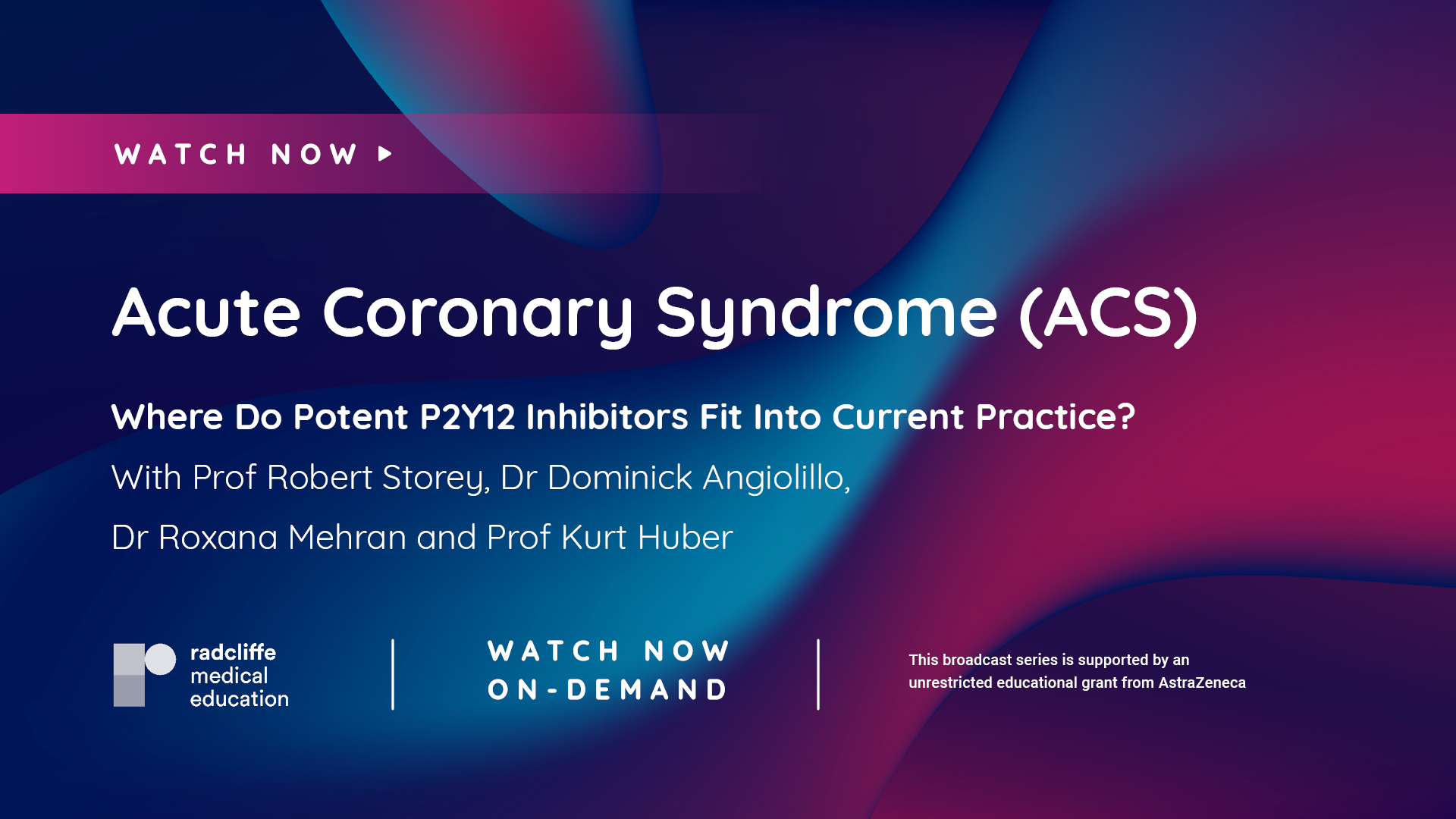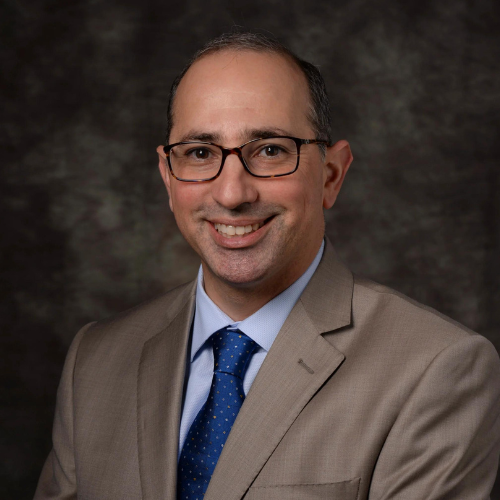Where Do Potent P2Y12 Inhibitors Fit Into Current Practice? - Acute Coronary Syndrome (ACS)
Published: 24 June 2022
-
Views:
 14422
14422
-
Likes:
 7
7
-
Views:
 14422
14422
-
Likes:
 7
7
-
 18m 8sPart 6 Long-Term Management
18m 8sPart 6 Long-Term Management
-
 9m 31sPart 7 Q&A and Discussion
9m 31sPart 7 Q&A and Discussion
-
 14m 41sPart 1 Unmet Needs in ACS Dominick J Angiolillo, Robert F Storey, Roxana Mehran, Kurt Huber
14m 41sPart 1 Unmet Needs in ACS Dominick J Angiolillo, Robert F Storey, Roxana Mehran, Kurt Huber
-
 10m 49sPart 2 P2Y12 Inhibitors in ACS: The Journey So Far Kurt Huber
10m 49sPart 2 P2Y12 Inhibitors in ACS: The Journey So Far Kurt Huber
-
 21m 29sPart 3 Potent P2Y12 Inhibition Robert F Storey
21m 29sPart 3 Potent P2Y12 Inhibition Robert F Storey
-
 16m 2sPart 4 Balancing Efficacy and Risk Roxana Mehran
16m 2sPart 4 Balancing Efficacy and Risk Roxana Mehran
Overview
This broadcast series 'Where Do Potent P2Y12 Inhibitors Fit Into Current Practice?' will reappraise potent P2Y12 inhibitors, as evidence accumulates to support their broader use. At this juncture, there is still some uncertainty around patient selection, initiation and long-term management.
The first broadcast in this series, focused on Acute Coronary Syndrome (ACS). In this on-demand version of the live broadcast, Radcliffe Medical Education brings together a global faculty of experts in the field to look at current guidance, the landmark data, gaps in evidence and seeks to provide practical guidance.
Prof Rob Storey (Sheffield University, UK) moderates proceedings, and is joined by Prof Roxana Mehran (Mount Sinai Hospital, US), Prof Dominick Angiolillo (University of Florida College of Medicine-Jacksonville, US) and Prof Kurt Huber (Clinic Ottakring, AT) for a series of insightful presentations and discussions.
Catch up now on the other broadcasts in this series:
Key Learning Objectives
- Recall current unmet needs in ACS
- Summarise current use of antiplatelet therapy in ACS according to guidelines
- Describe the mode of action of potent P2Y12 inhibitors
- Identify settings where a potent P2Y12 inhibitor should be used in favour of clopidogrel
- Summarise the results of head-to-head trials between clopidogrel and potent P2Y12 inhibitors
- Select appropriate assessment criteria for ischaemic risk and bleeding risk
- Identify patients in whom a medical therapy only approach could be used over invasive strategies
- Use antiplatelet therapy effectively and safely for long-term management of ACS
Target Audience
- General Cardiologists
- Interventional Cardiologists
- Nurses and any other allied HCPs
More from this programme
Part 1
Unmet Needs in ACS
| 1 session | |
| Unmet Needs in ACS | Watch now |
Part 2
P2Y12 Inhibitors in ACS: The Journey So Far
Part 3
Potent P2Y12 Inhibition
| 1 session | |
| Potent P2Y12 Inhibition | Watch now |
Part 4
Balancing Efficacy and Risk
| 1 session | |
| Balancing Efficacy and Risk | Watch now |
Part 5
Medically Managed ACS
| 1 session | |
| Medically Managed ACS | Watch now |
Part 6
Long-Term Management
| 1 session | |
| Long-Term Management | Watch now |
Part 7
Q&A and Discussion
| 1 session | |
| Q&A and Discussion | Watch now |
Faculty Biographies

Dominick J Angiolillo
Professor & Chief
Dr Dominick Angiolillo graduated from the Catholic University of the Sacred Heart Medical School in Rome, Italy and pursued training in interventional cardiology at the Complutense University of Madrid in Spain and received his Ph.D. in cellular and molecular cardiology. Dr Angiolillo is board-certified in internal medicine, cardiovascular disease and interventional cardiology.
In 2004, Dr Angiolillo joined the University of Florida College of Medicine in Jacksonville, where he is a professor of medicine, director of cardiovascular research and director of the interventional cardiology fellowship program.
Dr Angiolillo has made major scientific contributions to many medical and cardiovascular journals, as well as cardiovascular medicine textbooks. He has authored more than 400 peer-reviewed articles, with nearly 30,000 citations and an H-index of 86. He has authored more than 30 book chapters and is the editor of his…





